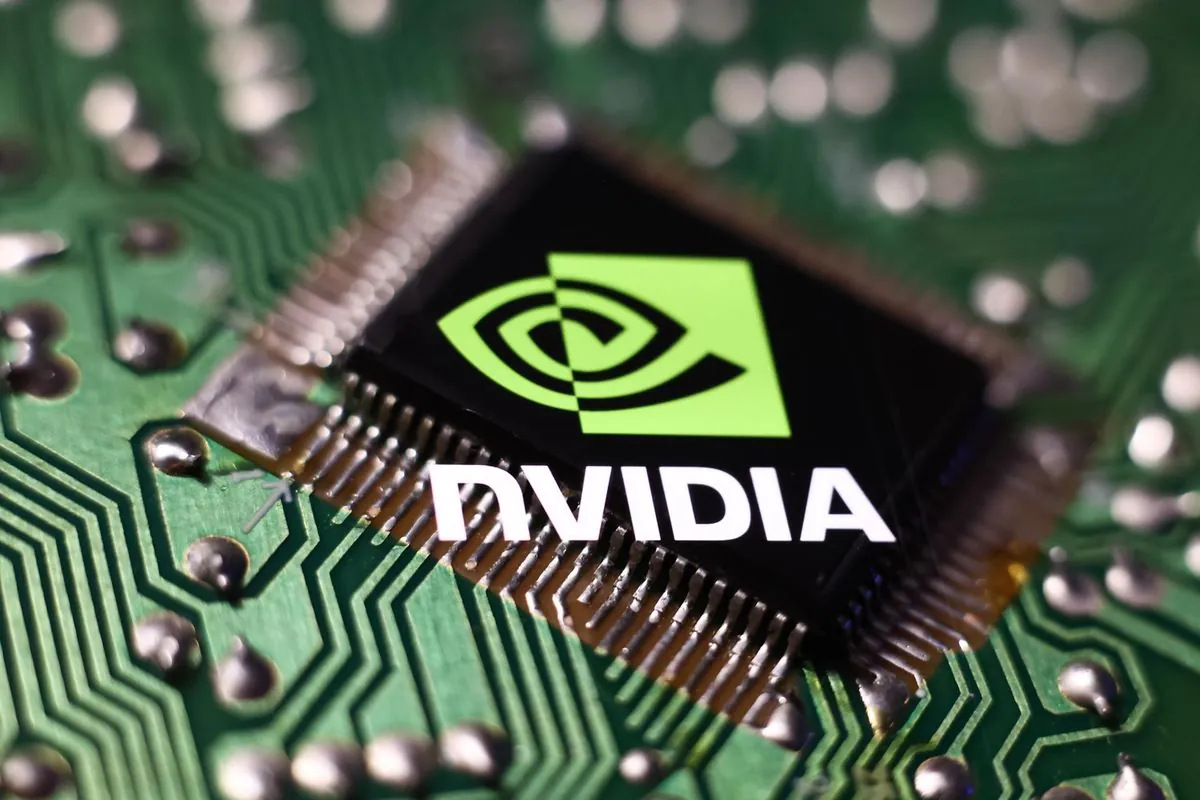Nvidia Develops China-Specific AI Chip Amid Export Controls
Nvidia plans to launch a modified version of its Blackwell AI chip series for the Chinese market, complying with U.S. export regulations. The move aims to maintain Nvidia's market share in China.

Nvidia, the renowned AI chip manufacturer, is developing a China-specific version of its latest AI processor to comply with current U.S. export regulations, according to sources familiar with the matter. This strategic move comes as the company aims to maintain its market presence in China amid tightening export controls.
In March 2024, Nvidia introduced its Blackwell chip series, set for mass production later this year. The B200, a flagship model in this series, boasts processing speeds 30 times faster than its predecessor for certain AI tasks, such as chatbot response generation.
The China-specific chip, tentatively named "B20," is planned for distribution in collaboration with Inspur, a major Chinese partner. Sources indicate that shipments are scheduled to commence in the second quarter of 2025.

This development follows the U.S. government's 2023 tightening of export controls on advanced semiconductors to China, aimed at preventing military-related supercomputing breakthroughs. In response, Nvidia has already created three China-tailored chips.
The stricter U.S. regulations have provided opportunities for Chinese companies like Huawei and Enflame to gain ground in the domestic AI processor market. However, Nvidia's adaptation of its Blackwell series for China could help the company maintain its competitive edge.
China's importance to Nvidia's business is evident, with the country accounting for approximately 17% of the company's revenue in the year ending January 2024, down from 26% two years prior due to U.S. sanctions.
"China accounted for around 17% of Nvidia's revenue in the year to end-January in the wake of U.S. sanctions, sliding from 26% two years earlier."
Despite initial challenges, Nvidia's H20 chip, designed for the Chinese market, is now experiencing rapid sales growth. Estimates suggest the company may sell over 1 million H20 chips in China this year, potentially generating more than $12 billion in revenue.
As the technological competition between the U.S. and China intensifies, the Biden administration is considering additional measures to regulate advanced AI technologies. These potential restrictions could further shape the landscape of AI chip development and distribution globally.
Nvidia's efforts to adapt its products for the Chinese market while complying with U.S. regulations highlight the complex interplay between technological innovation, international trade, and geopolitical considerations in the rapidly evolving AI industry.


































